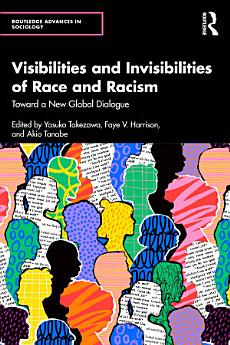Visibilities and Invisibilities of Race and Racism: Toward a New Global Dialogue
About this ebook
Racism is not a uniquely transatlantic phenomenon but, because it is most often understood within Euro-American paradigms, its salience in other contexts is often less visible. The chapters in this volume analyze the process by which fundamentally invisible differences have been made visible, and various groups and communities have been marked, essentialized, and substantialized under a range of social, political, and cultural conditions. Focusing on the space between the visible and invisible, they evaluate the dynamics by which invisible differences are rendered visible, and by which visible differences render other differences invisible. In doing so, they promote a decentering of Western-centered frameworks and elucidate continuities with and discontinuities from past era of racial antagonism and conflict. They look at case studies ranging from Japan, India, and Southeast Asia, to Iceland, the United States, and intra-“white” racism in Europe. The strength of this work lies in its exploration of the varied modalities of race and racism, particularly those that deviate from the conventional, visibly identifiable notions of race, thus broadening the understanding of racism beyond traditional paradigms.
An important contribution to the re-worlding of the study of racism for scholars, researchers, and students of anthropology, sociology, ethnic studies, and intercultural studies.
About the author
Yasuko Takezawa is the Director and a Professor at the Intercultural Research Institute, Kansai Gaidai University, and Professor Emerita at the Institute for Research in the Humanities, Kyoto University, Japan.
Faye V. Harrison is a Professor of African American Studies and Anthropology at the University of Illinois, Urbana-Champaign, USA.
Akio Tanabe is a Specially Appointed Professor at the Graduate School of Asian and African Area Studies, Kyoto University, Japan.






